Given that Apple now sits on well over $144.7 billion in liquid resources, there's lots of discussion about how the company could or should be spending it. What Apple is already doing with its cash is actually more interesting.
The Apple cash machine
Steve Jobs built Apple into a cash generating machine. In 2000, just as Apple was beginning to recover from its 1990s beleaguerment, the company reported just $786 million in net income on revenues of $7.8 billion for the entire fiscal year, and it sat on a "mere" $4 billion in cash.
Additionally, nearly half ($367 million) of Apple's income that year was attributable to selling off portions of its investment in ARM, the mobile chip design it had co-created with Acorn for the Newton Message Pad, resulting in the world's most popular architecture for embedded devices, which would subsequently power the iPod, iPhone, Apple TV, iPad and virtually every other smartphone.
Fast forwarding to its most recent earnings call, Apple noted that in just the first half of the 2013 fiscal year, the company had revenues of $98 billion and net income over $22 billion. And rather than relying on selling off old investments to pad its books, Apple's profits are now coming from the sales of innovative, profitable new products.
Apple's revenues grew by $13 billion over the first half of fiscal 2012, which chief executive Tim Cook stated was like adding in the performance of "five Fortune 500 companies."
Apple's annual revenue growth could also be compared to creating about half of a new Google in the space of a year; in comparison, Google own revenue growth over the past year has only been less than a third of its current self.
Apple now sits on a staggering amount of resources, much of which has been earned (and remains) outside the United States. The company is now generating so much new cash that it has jumped to the front of the line both in paying its shareholders the most dividends and in paying the U.S. the most taxes (in part because it doesn't evade taxes by routing domestic sales through other countries as many of its competitors do). Even so, it's amassing new cash faster than its spending it.
In 2012, "Apple paid $6B in federal corporate income taxes: 1/40th of all corporate income taxes collected by the US" bloomberg.com/news/2013-05-0…
— Daniel Eran Dilger (@DanielEran) May 3, 2013
What's Apple going to do with all that buying power?
While pundits and analysts like to focus attention on how Apple is now appears incapable of growing at the same historical pace simply due to the laws of physics and the finite size of certain markets (limited by factors such as the world's population), it's simply unquestionable that Apple has incredible buying power, and that power isn't going to fade away.
What is Apple doing with its cash? First off, take a look at what it isn't doing. Apple isn't attempting to buy its way into new businesses. Unlike Google's $12.5 billion acquisition of Motorola's hardware business or Microsoft's $8.5 billion purchase of Skype for a video conferencing product, Apple built its own mobile hardware business and then crafted FaceTime in-house.
Apple's has only made a couple dozen, smaller acquisitions over the past decade, rarely spending more than $250 million on any of them. In contrast, Google has made more similarly sized acquisitions than that in just the last couple years since it splurged on Motorola!
Comparing iOS with Android, it's hard to understand what Google is getting from all its acquisitions in comparison to the key strategic features growing on Apple's platforms, from Siri to iAd to Maps to HDR and facial recognition.
It appears that Apple's corporate DNA is not programmed to simply go out and merge with or acquire other large, existing businesses. Instead, it has created new businesses, some in a virtual vacuum of market space (like the iPod), others within mature markets rife with entrenched competition (like the iPhone), and sometimes (like the iPad) in the fallow ground left idle behind by competitors who couldn't figure out how to make any money in them.
The same pundits who doubted every new product Apple ever released are now, in hindsight, attributing Apple's success entirely to "lucky" blockbuster products like the iPod, iPhone and iPad, and somehow drawing the conclusion that Apple can't replicate its historical success because there's either no more obvious opportunities left, there's too much competition, or because other companies haven't been able to figure out how to make money in a given field.
What they are missing is that Apple's product success isn't a matter of lucky products or of marketing magic. Apple is a cash machine because Apple has invested in building great products. And that means building the talent to conceptualize, develop, orchestrate, deliver and support those products. That's something Apple's competitors don't currently seem to be doing.
Samsung gets a $9 billion taste of Apple's forbidden fruit
Closest behind Apple is Samsung Electronics, a Korean powerhouse conglomerate with incredible global reach (through resellers more numerous than Apple's) and capacity (via its internal component manufacturing). Samsung is also spending incredible billions on increasing its production capacity, but those capital investments are now cooling off.
In 2012, Samsung invested about $21 billion in expanding new chip and panel production, but that was about 10 percent less than it expected to spend. This year, the company said it plans to spend about the same as last year rather than growing at all, after years of tremendous growth. Samsung is about to copy Apple again, because its spectacular recent growth will also become the baseline for measuring its future growth, something that will be increasingly unflattering.
Apple's planned investment spending for 2013 is, coincidentally, up $2 billion from what it expected to spend in 2012, a total of $9 billion outside of its retail expansions. And last year, Apple's actual capital expenditures were also $2 billion more than it expected to spend.
Chief financial officer Peter Oppenheimer said Apple's fiscal 2013 $9 billion in cap ex would be "spent in a variety of areas," detailing that "we're buying equipment that we will own that we will put in our partners facilities. Our primary motivation there is for a supply, but we get other benefits as well."
While so much attention has been placed on Apple's lack of continued growth at historically exponential rates, Samsung is about to copy Apple again, because its spectacular recent growth will also become the baseline for measuring its future growth, something that will be increasingly unflattering. Samsung has already started to warn its investors of this.
Conversely, Samsung's significant chip rival Taiwan Semiconductor Manufacturing Company announced a $9 billion increase in capital investments for 2013, which happens to be about the same as what Apple announced it would be spending this year to guarantee component supplies, and about half the size of Samsung's production budget (which correlates with the size of Apple's business relative to Samsung's own).
So it would appear that the most significant thing Apple is doing with its cash is pulling Samsung's knife from its back, cutting itself free from its former three-legged race partner, and planting the knife firmly in its former partner's chest.
Given that Apple's been running the smartphone race really well despite harboring that Galaxy S knife over the past three years, it will be interesting to see how well Samsung does in the 2013 lap as the course heads uphill into even more difficult terrain, now that it has its knife back and is no longer inextricably bound to the world's fastest consumer electronics sprinter.
Another $1 billion of retail palaces
Another big thing Apple is spending its money on in 2013 is retail expansion and enhancements. The company intends to open around 30 new stores and replace 20 existing locations with larger ones, allocating about a billion dollars for this purpose.
Apple currently has 402 stores, 151 of which are outside the United States. With average revenue per store at $13.1 million (up from $12.2 million one year ago), that indicates that having 30 new stores will generate at least another $393 million in revenue, a pretty incredible, immediate return on that retail investment even if the other 20 new expansions do nothing to raise per-store average revenues.
Unlike other companies that are also opening retail outlets, including Microsoft and Samsung, Apple isn't opening new stores simply to showcase that it has products to sell. Apple's executives speak about store openings as strategic to product launches. Jobs remarked that stores were integral to the iPhone's launch, and Cook recently made similar comments linking Apple Stores to new iPhone launches in China.
"Going forward," Cook said in the last quarterly earnings conference call, "we still see significant opportunity in China. It's a great market. We have 11 stores there. We expect to double those in less than two years. We have added about 8,000 iPhone point-of-sales in the indirect channel to about 19,000 today, and we obviously have a plan to add more and further grow our distribution. This number is, obviously, too low currently."
While pundits like to search for Apple's potential problems and spin every fact in the most dramatically negative way possible, it's simply a readily observable fact that Apple can build lots of new stores for many years, and effectively print money as it does so, reaping immediate new revenues and growth in product sales. It's less clear that any of its rivals can do the same.
Compare Microsoft's retail initiatives for a stark contrast: the company started building its own stores in late 2009 and currently has 36. Another seven are planned for this year. Unlike with Apple's stores, it's hard to correlate the presence of these stores with any launch successes, particularly given such flops as the Zune, Windows Phone, Windows 8 and Surface. It's simply a readily observable fact that Apple can build lots of new stores for many years, and effectively print money as it does so.
Further, rather than establishing Microsoft as a brand that supports its products through actual brick and mortar retail stores with live "genius bar" like staff, Microsoft has opened holiday popups that, like the Manhattan Times Square store, vanish as soon as the holiday sales do.
Microsoft also clearly lacks Apple's virtually insatiable consumer demand for new stores. In 2011, Microsoft said it planned to have 75 retail outlets open within a couple years. One year later, it shifted the goalpost to now expect to have just 44 stores open by the summer of 2013. Microsoft isn't out of capital to build new stores, it just isn't seeing a similar return on investment comparable to Apple's retail store performance.
Samsung similarly made headlines when it announced it would rapidly open 1,400 retail spots within Best Buy locations this year, far more mini stores than Apple operates with the retailer, and more than three times the number of Apple's own chain of retail stores.
But if such mini-stores within Best Buy were money makers, it calls into question why Apple itself doesn't operate that many dedicated mini-stores with Best Buy after more than a decade of partnership. Samsung isn't spending a billion dollars to roll out the mini-stores, but it certainly will be paying a lot to staff the dedicated areas with employees. At the same time, dedicated mini kiosks in Best Buy didn't do much for sales of Windows Phone, Windows 8 PCs, or various 3D TVs either.
$4 billion in software development incentives
While its certainly not the end of what Apple's spending its money on, a third significant expenditure that the company is making as an investment in its future is its payments to software developers.
Oppenheimer recently stated that "we are now paying very happily our developers more than $1 billion every quarter," a rapidly increasing number that just one year ago was the total amount the company had paid out to iOS developers since opening the App Store four years prior.
Of course, Apple isn't digging into its cash reserves to send developers charity funds in a desperate plea for new iOS apps. Those billions in revenues are coming directly from consumer demand for apps. However, there wouldn't be any substantial demand for apps if Apple did what Google, Microsoft and every other mobile developer had done (and continue to do) on their platforms.
In Google's case, it set up a poorly managed outlet for Android apps that encouraged lots of junk but did very little to attract valuable development. It is so easy to steal Android apps that there is very little value to developers in creating them, apart from "ad supported" titles and ports that exist only to minimally address the volume market. This makes Android apps much like the web itself: lots of dubious content littered with ads and malware threats, but so difficult to monetize that it can't really compare with a real platform ecosystem like iOS.Rather than looking at the more than $4 billion Apple will pay its developers this year, one can also direct attention to the roughly $1.7 billion Apple will earn from the sales of App Store titles.
Microsoft similarly started with a Windows Mobile Marketplace that appeared to have Apple beat in leveraging the development tools and numbers of desktop Windows developers.
But that market not only never took off, but was shuttered and replaced with a new store for incompatible new Windows Phone apps, closely pattered after Apple's App Store. Microsoft also learned first hand that it is impossibly expensive to pay developers directly to build apps for which there isn't any consumer demand.
In the realm of developer payments, rather than expecting "the community" to create value in chaos as Google has, or trying to bankroll speculative development without demand as Microsoft has, Apple has carefully tended a market for apps, reinvesting billions in iTunes and iCloud to create a market where voracious consumers are matched with prolific, creative developers.
Apple's curation of iTunes is notable because the company dedicated itself to reinvesting its 30 percent cut on app sales back into iTunes infrastructure, resulting in a market that keeps handily outpacing competing mobile platforms.
Rather than looking at the more than $4 billion Apple will pay its developers this year, one can also direct attention to the roughly $1.7 billion Apple will earn from the sales of App Store titles, which will fund new development in the future of iTunes and App Store infrastructure.
What's a few billion when you need new digs?
A fourth significant investment Apple is making in its future is the billions being spent on its new Apple Campus 2 project (speculatively estimated to cost as much as $5 billion by Apple's critics) and a series of the world's greenest data centers for iCloud, each of which may cost as much as the $1 billion funding its Reno Nev., project.
Apple desperately needs new office space, so it seems foolish to second guess the value of investing long term in even the most extravagant new headquarters complex drawn up by the company for occupancy in 2016.
That hasn't stopped the tech media from wondering out loud if Apple's new project is an expensive harbinger of doom, even if they don't also concern themselves with the bleakest of possible future prospects related to the construction plans of far less profitable and capital rich companies like Facebook, Nvidia, Google and Samsung, who are also building lavish new buildings.
Given Apple's cash-rich ability to source and shift global production of component supplies, expand its globally leading retail operations, enhance its position as the world's most important digital storefront and orchestrate vast construction projects, it shouldn't be surprising that the company is aiming at the future, not at short term gimmickry to prop up the appearance of its stock price or its standing in the arbitrary market share graphics of research companies that are paid to express various ineffectual opinions on the future of the industry.
Looking at the spectacular payoffs on investment Apple has previously earned with its capital, it's hard to take serious the commentary that the company should instead be trying to acquire dubious social app fads or duplicative or complementary larger businesses like Netflix, DropBox, Twitter and so on.
If there were someone better equipped than Cook and Apple's Executive Team to be spending Apple's money, those persons would have accumulated vast capital of their own to spend, and would already have the global power and influence that Apple has earned for itself.
That makes it all the more interesting to see what the company that Jobs built will be doing next. The company's upcoming Worldwide Developer Conference should reveal quite a lot along those lines.
 Daniel Eran Dilger
Daniel Eran Dilger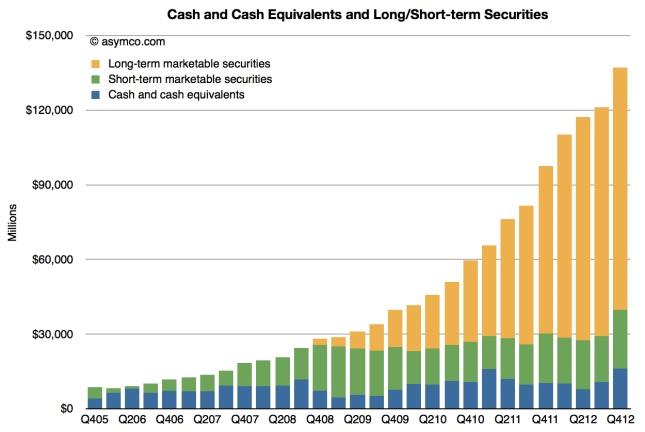
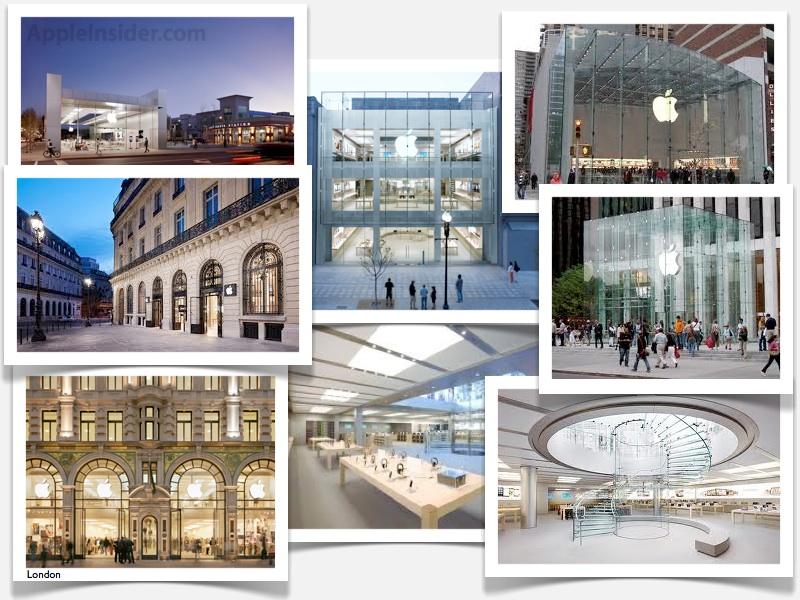
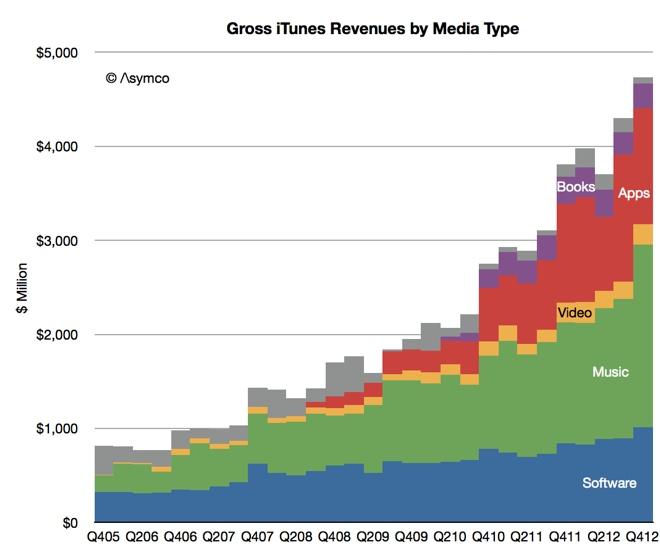
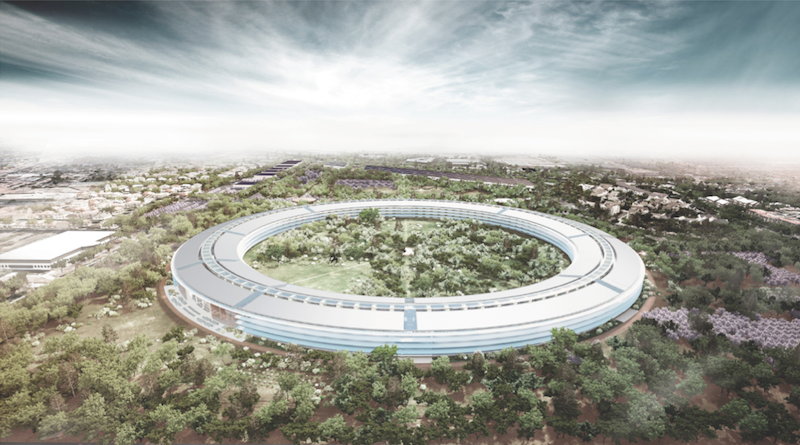







-m.jpg)






 Amber Neely
Amber Neely

 Malcolm Owen
Malcolm Owen
 William Gallagher
William Gallagher

 Christine McKee
Christine McKee
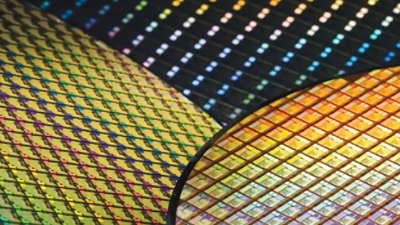





-m.jpg)



182 Comments
Just think!
Apple could afford to give $1 billion to each and every satisfied, productive Android user!
I wonder if Samsung execs thought it would be impossible for Apple to move away from them, just too big and too complex a task? If so, they underestimated what Tim Cook (with his background in operations) was capable of.
Everyone says that Apple was just lucky to get a couple of successful products and most of that luck relied on Steve Jobs. Now that Steve Jobs is long gone, never to return, Apple is claimed to be finished as a company. Everyone says that Apple's innovation died with Steve Jobs and now the iPhone is woefully behind the entire Android platform. Google spent $12.5 billion on Motorola and seems to have gotten much more money back. Google's shareholder wealth has increased greatly and so has Google's P/E ratio. Wall Street says that Google has a very bright future, unlike Apple, and values Google with high regard. Motorola definitely did not become a financial waste for Google and also provided a deeper patent base. Google has gained many tens of billions of dollars in market cap since acquiring Motorola. As for Google's other acquisitions, they're providing constant upgrading in services at an astounding rate. What does Apple have to show for itself? It's like Apple is in some sort of service drought. Google is just flooding iOS with all their own services. Apple should keep that crap off the iOS platform and start building their own services. All Google is doing is planting free trojan horse services to undermine iOS. Apple should have more than enough money to acquire or design its own services without having to depend upon Google. Apple keeps trying to save its reserve cash but so far Apple is only succeeding in losing hundreds of billions of dollars in shareholder value within a relatively short time. That's a very poor trade-off for cash. Apple has has a P/E ratio of 10 while Google now has a P/E ratio of almost 30. Google's value is skyrocketing while Apple's value continues to drop. Google is now worth nearly $1000 per share while Apple struggles to hold $450. Apple's so-called empire must not be very impressive to Wall Street despite dividends and stock repurchases. Apple needs to use that cash to its advantage instead of just saving it. Get that money working to give the company some extra value like Google has. Apple is still seen as a doomed company by investors and analysts as Android grabs major mobile market share as Apple's market share continues to fall. How is all that reserve cash giving Apple any advantage over anything? Even Samsung is now said to be pummeling Apple from all sides. Everyone still believes Apple is dying without Steve Jobs, so how has all that reserve cash helped Apple.
``While pundits and analysts like to focus attention on how Apple is now appears incapable of growing at the same historical pace simply due to the laws of physics....'' --------------- Please just don't include subject matter you clearly don't grasp, especially when it's insulting to those that do: ``...due to the laws of physics...'' is obnoxious. Money is a man-made construct, not a universal physics construct. P.S. The rest of the Op-Ed is solid.
[quote]...So it would appear that the most significant thing Apple is doing with its cash is pulling Samsung's knife from its back, cutting itself free from its former three-legged race partner, and planting the knife firmly in its former partner's chest...[/quote] It's what Steve would have wanted.